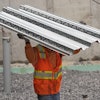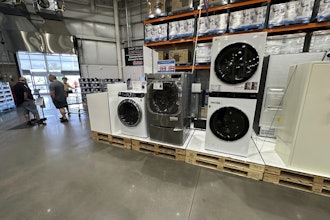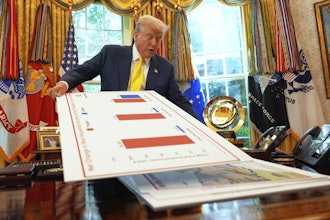
CLEVELAND, Ohio — Metalforming manufacturers’ outlook for economic activity declined this month, according to the March 2025 Precision Metalforming Association Business Conditions Report.
Prepared monthly, PMA’s report provides an economic indicator for the next three months of manufacturing, sampling 103 metalforming companies in the United States and Canada.
PMA’s March report shows that 23% of surveyed manufacturers anticipate an increase in economic activity in the next three months (down from 32% in February), 54% predict no change in activity (almost no change compared to 55% in February) and 23% expect a decrease in activity (up from 13% last month).
Metalformers also forecast a decrease in incoming orders, with 24% of survey respondents anticipating a decline in orders in the next three months (compared to only 13% in February), 40% predicting no change (compared to 43% last month) and 36% expecting an increase in orders (down from 44% reported in February).
Current average daily shipping levels moderated somewhat in March after spiking in February, with 35% reporting an increase in shipping levels (up from 30% in February), 40% reporting no change (compared to 51% last month) and 25% reporting a decrease in levels (compared to 19% in February).
The survey also showed that 12% of respondents had workers on short time or layoff in March (up from 8% in February), while 34% are currently expanding their workforce (the same percentage reported last month). Fourteen percent of respondents reported an increase in lead times in March, compared to 8% in February.
“The decline in metalforming manufacturers’ outlook this month reflects ongoing uncertainty in the market, some of which is tied to evolving trade policy,” said David Klotz, PMA president. “Tariffs — including the Section 232 steel and aluminum tariffs, as well as the potential for new tariffs on imports from Canada and Mexico, and possibly on copper — remain a concern for our members. The Section 232 tariffs are creating supply challenges and driving up the cost of all steel — imported and domestic — for manufacturers. We urge the Trump administration to implement a robust, functional and transparent derivatives process for Section 232 tariffs to ensure that all segments of the manufacturing industry — not just domestic steel producers — are protected and able to compete on a level playing field.”
Full report results are available at pma.org.






















